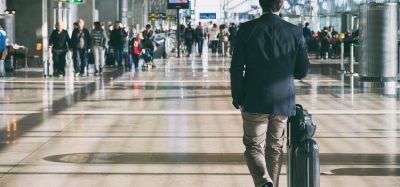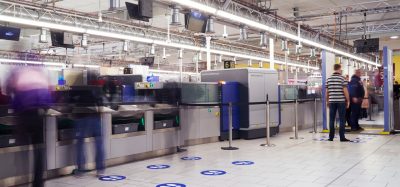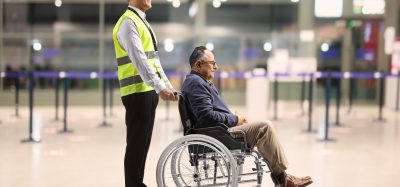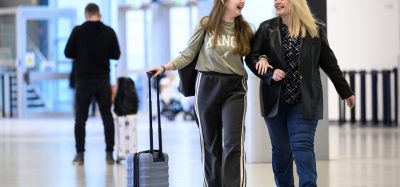First-of-its-kind autonomous robot at Dallas Fort Worth International
- Like
- Digg
- Del
- Tumblr
- VKontakte
- Buffer
- Love This
- Odnoklassniki
- Meneame
- Blogger
- Amazon
- Yahoo Mail
- Gmail
- AOL
- Newsvine
- HackerNews
- Evernote
- MySpace
- Mail.ru
- Viadeo
- Line
- Comments
- Yummly
- SMS
- Viber
- Telegram
- Subscribe
- Skype
- Facebook Messenger
- Kakao
- LiveJournal
- Yammer
- Edgar
- Fintel
- Mix
- Instapaper
- Copy Link
Posted: 5 March 2020 | Khaled Naja | No comments yet
With the capability to handle nearly 450 bags per hour, DFW decided to test an autonomous solution to help improve the experience of passengers transferring from international flights.
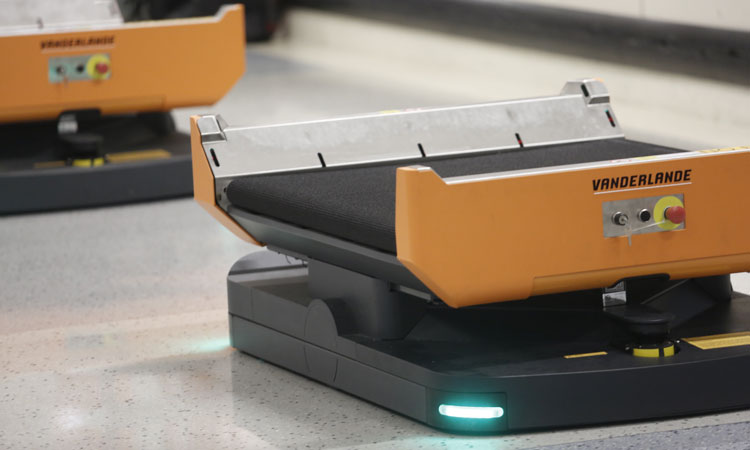

In June 2019, Dallas Fort Worth International (DFW) Airport made the decision to trial innovative technology with the focus of helping customers experience more seamless transfers. Following this decision, the first-of-its-kind robotic system, FLEET, was temporarily installed in the re-check area in Terminal D.
At the time of implementation, Khaled Naja, Executive Vice President of Infrastructure and Development at Dallas Fort Worth International Airport, said: “DFW is testing the process to see how we might provide our customers with a more seamless journey using the award-winning technology within our current baggage infrastructure, and integrating automation for efficiency.” With the trial now complete, International Airport Review spoke to Naja to get an insight into the results obtained.
Trialling autonomous robots
The FLEET autonomous vehicles trial was an intuitive initiative for customers. The kiosks were strategically placed in the baggage transfer area, and all customers had to do was choose the airline they were transferring to. The kiosk then instructed them to place their luggage on the unit and the next available FLEET vehicle picked up the bag and dropped it off on the corresponding transfer belt.
The trial included a handful of autonomous vehicles in a cordoned-off section in the baggage transfer area outside of customs in Terminal D. This meant that there was no disruption to the normal procedures or customer throughput at the airport.
The space used was strategic in nature as it offered an easy access point for customers in the baggage transfer area. The space was used efficiently to accommodate the FLEET autonomous vehicles and facilities were coordinated to offer optimum use by customers.
Passengers were intrigued by the robots and, since the trial, many positive testimonies from passengers have been collected. The consensus is passengers enjoyed using the FLEET autonomous vehicles to transfer their bags.
Looking to the future
This was a trial to better understand how autonomous vehicles could function in different areas of the airport. DFW Airport is always looking at new and innovative technologies that could improve the customer experience throughout the terminal.
For example, October 2019 witnessed the Airport Board approve funding for a six-month pilot of a self-driving shuttle to serve passengers in the Remote South Parking Lot. Once initial mapping and preparation is completed in November, the shuttle, leased from EasyMile, Inc. of Denver, will provide a quick and efficient ride from the outer reaches of the expansive parking lot to the transportation centre for shuttle service to the terminals. While the focus of this pilot is customer service, it also will provide the airport’s Innovation Division team with valuable information about autonomous vehicle mapping, operation, charging and maintenance. This will be vital in assessing the viability of autonomous vehicles in other roles around the airport for the future.
Khaled Naja serves as Executive Vice President for the Infrastructure and Development Division of Dallas Fort Worth International Airport. He oversees the design, code and construction; commercial development; energy; transportation and asset management; and also the planning departments. His responsibilities include directing all aspects of development at DFW, including master planning, engineering, a $3 billion capital improvement programme, construction work, and commercial real-estate development.
Issue
Related topics
Autonomous Technology, Baggage handling, New technologies, Passenger experience and seamless travel, Terminal operations



